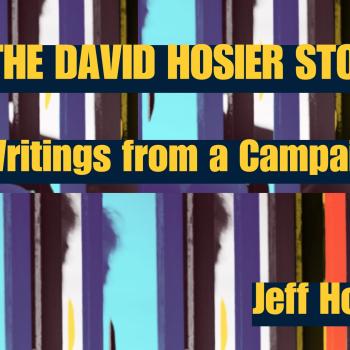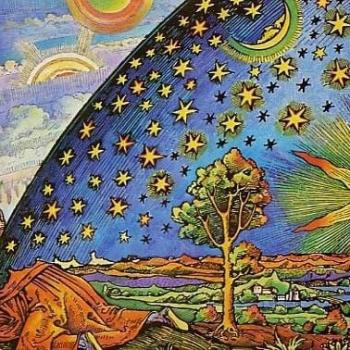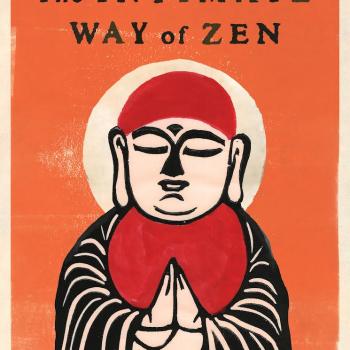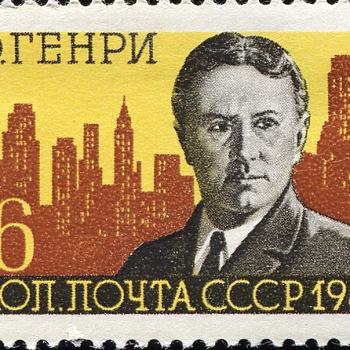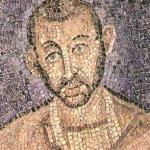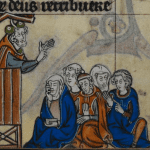SURPRISED BY JOY
A Meditation on Kensho in Zen, Buddhism, and Literature
Delivered at the
First Unitarian Church of Los Angeles
September 19, 2021
James Ishmael Ford
“Each branch of coral holds up the moon.”
Blue Cliff Record, Case 100
Let’s reflect on the spiritual path, just a little.
Let’s consider the moment our heart’s turn. That grace when we are gifted with noticing the world with new eyes, where we discover the world is not how we thought it was. When are certainties loosen their death grip, and we catch a glimpse of a larger life. In Zen the word this is kensho, seeing into who we really are. Another term of art for this moment in Zen is satori, to know or to understand.
Kenshos are mysterious invitations into joy. A strange joy. A mysterious joy. A terrible joy.
The words are slippery. What is “who we really are?” What is “known or understood?” And, “joy?” What does that mean?
Now one can try to present the matter logically, spelling out processes and encounters. And there is merit there, not doubt. But, this is a matter of the heart. It’s about how we live in this world. We need to make sure our bodies come along with our minds. So, one can tell stories. In my life, I’ve found stories actually more helpful when approaching these deeper matters of joy and sorrow, of how we meet this world. So. With that.
In my late twenties I began to cobble together a hodgepodge of a self-directed education. I was a High School dropout, but also. I working in a large used bookstore. And I turned it into my private university. Mostly I followed my nose. But I did on occasion take advice. And I was told it could be helpful to read Marcel Proust’s magnum opus, Remembrance of Things Past.
It’s really big. And I took it as something of a challenge. I chose the Modern Library seven volume edition. It was cheap. And I could carry the individual volumes without any trouble. Which was important as I read the first four volumes pretty much entirely while waiting for and riding a bus between home and work. Those four volumes took me about a year. I read other things during the day and evening. Then, as I began the fifth volume, I got so caught up in the book I consumed the last three volumes in a single month. Sort of gobbled them down in large gulps.
That book lingers in my mind’s eye. Taking the whole thing together it encompassed multiple worlds. I fully understand how it becomes one of the great monuments of literature. While I’ve never attempted a re-read, it continues to have a place in how I meet the world, in my sense of who I am.
One passage especially caught me. It would seem I’m not alone in this. But it really touched me, personally. It was a major pointer helping me to unpack my own life experiences. That passage echoing the style of the book itself, is a bit long. It meanders sort of like one of those great rivers, a Mississippi of the heart. The sometime gentle roll, the occasionally flooding, all of it becoming, at least for me, irresistible.
Of course, if you’ve read the book, it’s not about a river. It’s about his meeting with a madeleine. At the time I had to look it up. It’s a kind of cake, although it looks more like a kind of cookie in our American usage.
The passage.
“And soon, mechanically, weary after a dull day with the prospect of a depressing morrow, I raised to my lips a spoonful of the tea in which I had soaked a morsel of the cake. No sooner had the warm liquid and the crumbs with it, touched my palate than a shudder ran through my whole body, and I stopped, intent on the extraordinary changes that were taking place. An exquisite pleasure had invaded my senses, but individual, detached, with no suggestion of its origin. And at once the vicissitudes of life had become indifferent to me…”
I think of that moment. Of that taste. Of that meeting. That simple joy which seems to open into some mystery.
Valentin Louis Georges Eugene Marcel Proust was born in Paris on the 10th of July, 1871. The eldest of two sons in a well-to-do family, their father Catholic, their mother Jewish. In deference to various things they were raised Catholic. It is said that as he aged, Proust became “an atheist and was something of a mystic.” I rather like that combination of contradictions. I identify with similar juxtapositions.
A place of both and. It is a place that invites surprises. Sort of a plot of flowers at the edge of a forest. You never know what will sport out among the tamer crops.
The “well-to-do” proved critical for Proust. Except for a brief period of military service, he remained at his parent’s home until their deaths. Mostly an invalid throughout his life, he rarely left his bedroom. He died in 1922, only fifty-one. Thanks to his brother a prominent surgeon who saw the genius and made sure the book was published, Proust is renowned for his magisterial novel. I’ve already used magnum opus, it really deserves those words, A la recherché du temps perdu, translated variously as Remembrance of Things Past, and In Search of Lost Time. Its seven volumes ran approximately 3,200 pages (actually 4,300 in the Modern Library English version I read. I looked.).
Remembrance of Things Past was called the greatest novel of the twentieth century by Graham Greene and rather more grandly the greatest novel to date by Somerset Maugham. Although I also know Anatole France is said to have said, “Life is too short, and Proust is too long.” In that spirit of both and, I suspect they’re all correct.
At the time as I read that passage about the madeleine, I thought, oh, my, is that a kensho experience? Zen’s word for the turning of the heart toward wisdom, for seeing beyond the dreams and stories we tell ourselves, pointing directly into the “real” of the worlds. This is the heart of the spiritual quest, to know for one’s self, the realities of this universe as some great unfolding.
To find these awakenings of our heart are essential for us to have direction. They birth for us a north star. Perhaps even the star that appeared above Bethlehem. But for us, you and me.
I’m especially taken with how this particular pointing comes from a world class neurotic, who barely could get himself out of bed. Someone who preferred cork-lined walls and his pen to any kind of actual human encounter. And, yet he was able to point true.
The spirit, it turns out, really does rest where it will.
Proust himself reflected on what happened and offers a perspective out of the experience. Something I’ve found useful. Later in the novel he writes.
One minute freed from the order of time has repeated in us, in order to feel it, the man freed from the order of time. And because of that we can understand why he trusts his joy, and even if the simple taste of a Madeleine does not seem logically to contain reasons for this joy, we can understand how the word ‘death’ has no meaning for him: situated outside time, why should he fear for the future?
I truly loved this pointing to something of the human heart’s desire, to encounter with our own lives the call of all the world’s religions. Into, well into something where words begin to fail, get shaky, even completely collapse. Although, in fact once loosened a bit, words, prove how they are magical things. Angels, if you will, in the sense of messengers. At least if we allow them their play, as in a novel, as in a koan. Then we can receive the message, we can find ourselves pointed to a taste of that small cake for ourselves. To find in our own bodies, as our own bodies, something bound in time and beyond time all at once.
Something wonderful. No doubt. And something important. A north star for our lives. Of course, it’s important to note that while it was a taste here, it could be something you see, or hear, or meet with any of the senses. Each part of who we are can be a door into wonder. If we allow ourselves to meet what we meet in the intimate way, the secret of our bodies, the secret of the universes is instantly revealed.
People make a lot of whether any given insight is slight or deep. I suggest that’s actually none of our business. If we take on the intimate way, these tastes, these moments, as the teacher Joko Beck uniformly called them, these small intimations, each in fact simply invite us into a journey. A journey that began before we were born. And a journey that continues well on past these moments, even gloriously crumbly moments like that madeleine. They’re not the culmination, they’re a door, they’re a signpost. They’re a gate, swung wide. Walk through. And. Then tthe journey continues.
Still, they’re important. Critical, even.
In my own life as a student of Zen, I was living in a monastery in that ever-exotic Oakland, California, of which Gertrude Stein whispered, there is no there, there. For me a delightful pointing toward the mysteries of Zen, as well as Oakland, city of my birth. In that monastery during a meal that featured the thinnest of thin broths I had an encounter with a cabbage leaf. I’ve described it before. And honestly, I’m finding the retelling less and less helpful.
The important thing is how it was for me an invitation into immediacy, into intimacy. So, a year or two later, after I left the monastery and as I read about that madeleine, it seemed obvious to me Proust and I touched something similar. There are hundreds, thousands of stories about this meeting. Those are two. Let me offer just one more.
One of the Zen teachers I most admire is the Japanese Rinzai master Yamada Mumon. In his study of the Oxherding Pictures, Zen’s wonderful map of the human heart when he comes around to his own pointing into the moment of the opened heart, he tells a story. Of course, it would be a story.
It’s about an encounter between Ippen Shonin, himself a wonderful and complicated thirteenth century Japanese spiritual seeker and teacher, and the Rinzai Zen master Shinichi Kakushin. Kakushin Roshi had studied with several teachers in Japan, including the founder of Japanese Soto, Eihei Dogen. Eventually he went to China where he studied under Wumen Huikai, the compiler of the koan anthology, the Gateless Gate. It’s one of the most important books in the Zen tradition.
Later when Kakushin returned to Japan he brought a copy of that book with him. A critical moment for Zen in Japan. Maybe an aside, perhaps not, in popular Japanese culture Kakushin Roshi is also said to have introduced soy sauce into the country. I would say the Gateless Gate and soy sauce are of near equal importance.
Ippen Shonin, on the other hand, had been a monk of the Tendai school, a broadly eclectic spiritual tradition that allowed a variety of directions. For him he undertook the study of Pure Land Buddhism, a teaching based in the observation we appear to be living in the last age, where matters are so corrupt that we can’t achieve enlightenment on our own. Fortunately, there’s a Buddha in another dimension, who made a vow that if someone called on his name, he would gather that person into his world, the Western Paradise, the Pure Land, where awakening would be as easy as the unfolding of a flower.
The spiritual practice for Pure Land Buddhism is called, in Japanese, nembutsu. It consists of the phrase “Praise to the Buddha of Infinite Light.” In Japanese “Namu Amida Butsu.” You can think of it like a mantra. Although some would dispute that characterization. Like any authentic spiritual practice its messier than any simplistic description.
Ippen’s father died when he was twenty-five, and he took off the robes, married and assumed his household responsibilities. But he continued his practices. During a pilgrimage a kami, a local god, I think of kami more as moments where time and place collapse into dreams, appeared and informed him he should tell people about the nembutsu. Which he did as an ecstatic, including dancing with the mantra. Something I’d not heard of before as part of nembutsu practice.
However, Ippen didn’t leave it at that. He knew there were many gates. And he was sure he could go deeper into the mystery. So, he also undertook Zen practice under the guidance of Kakushin Roshi. Master Mumon tells about this. At one point the Pure Land ecstatic shared a poem with his Zen teacher, a traditional way of expressing one’s spiritual state.
“In chanting, there is neither self nor Buddha,/Only the sound of Namu Amida Butsu.”
The Zen teacher replied, nice, but you’re not yet mature. Ippen bowed, and continued his contemplations. Soon he came back with a new verse.
“In chanting, there is neither self nor Buddha,/Namu Amida Butsu, Namu Amida Butsu.”
Perhaps you can feel how close he’s getting. Maybe you can even catch a sense of Marcel Proust and his madeleine. Of course, Kakushin tells him, better, but not intimate enough. Ippen then asks for direct explanation, and the Rinzai teacher spontaneously recites.
“In chanting, there is neither self nor Buddha,/Over the back pond, the wind is sighing.”
Perhaps you can feel the breeze which is no other than the chant which is no other than our very lives. Cabbage leaves. And, madeleines. Crumbs that I can taste to this moment. Angels with messages for those ready to hear.
The part that I feel really important to notice about these graces, larger and smaller, is how visceral they are. How intimate to who we are as beings. As I’ve noted there are a hundred gates into this intimate moment. Those closest at hand for us are our senses, seeing, smelling, touching, tasting, hearing, and Buddhists like to point out, the perceiving mind.
But. And this is an important “but.” But we need to understand this invitation is into something alive and dynamic. It is also something that a Jewish Catholic atheist can notice in a cookie, that a former Baptist boy finds as a cabbage leaf in a Buddhist monastery meal, that a Pure Land wanderer can find meeting with a Zen teacher and swapping poems. In a moment each of our senses can and do invite us to notice. It’s about being freed from the order of time, if for a few heartbeats.
And, for me, at least, in this encounter discovering not just gratitude, not even joy, precisely; but a certain sympathy with the whole of creation. Be careful. Each of these words are magic things. Pointing, as they are to the deeper possibilities of our being. Toward that north star.
The psychologist, advocate of dreams and mysteries, James Hillman tells us “Words, like angels, are powers which have invisible power over us…” Me, I love the connection between words and angels, both as mysterious entities with powers that we are not necessarily aware of, or totally understand. And, as I consider gratitude, and joy, and sympathy, I feel, yes, the moments of disruption of the way we think things are, are without a doubt also visitations.
Angels. James Hillman sings to us “Open your heart, your gaze, to the visitations of angels, even if the gifts they bring may not be centerdness and balance but eccentricity and a wholly unfamiliar sense of pleasure called joy.”
Joy, again. For me the great project of insight, of wisdom has not been a path leading me to calm depths. Rather it has been Mr Toad’s wild ride. No doubt the intimate way in its various manifestations offers paths to a certain mysterious joy. A joy that mixes up loss and grief, beauty that breaks the heart, and madeleines and cabbage leaves and, absolutely, poems.
That joy that arises in the face of seeing how everything and everyone is in fact dying from the moment we birth into this world. That joy of discovering we are more intimate than sisters and brothers. Of course, there is sadness. Of course, longing. And hurt. And loss. Of course, all the range of emotions packed into that strange joy. No wonder one of the traditional images of the spiritual path is war. A dangerous image. But one we completely discard at our peril.
That said, at the heart of it all, coming from the side, from the corner of the eye, well not an eye, not some eye; my eye. Something never quite capturable is that mysterious joy. As Hillman sings to us.
“We would like otherworldly visitors to come as distinct voices with clear instructions, but they may only give small signs in dreams, or as sudden hunches and insights that cannot be denied. They feel more as if they emerge from inside and steer you from within like an inner guardian angel” To which there is an addendum. “And, most amazing, it has never forgotten you, although you may have spent most of your life ignoring it.”
Like a madeleine. Like a cabbage leaf. Like a poem.
So, my advice. Be ready for the unexpected. Be ready for heartbreak. And be ready to be surprised by joy.
But be warned. It’s a fierce joy. It’s a terrible joy. It’s confusion, and wonder.
Like an angel appearing from heaven with a message.
Pointing us to new worlds.







